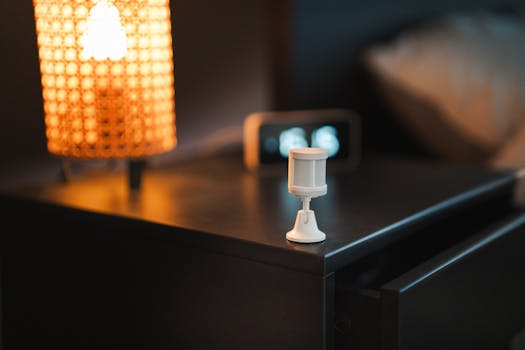
Home Automation in 2025: The Smart Home Ecosystem
Home Automation in 2025: The Smart Home Ecosystem is revolutionizing the way we live and interact with our living spaces. With the integration of Internet of Things (IoT) technology, artificial intelligence, and machine learning, homes are becoming smarter, more efficient, and more secure.
Introduction to Home Automation
Home automation refers to the use of technology to control and monitor various aspects of a home, including lighting, temperature, security, and entertainment systems. The goal of home automation is to create a comfortable, convenient, and safe living environment that enhances the quality of life for its occupants.
Key Components of a Smart Home Ecosystem
A smart home ecosystem consists of several key components, including:
- Sensors and Detectors: These devices detect and measure various parameters such as temperature, humidity, motion, and light, providing valuable data for automation and control.
- Controllers and Hubs: These devices receive and process data from sensors and detectors, sending commands to various systems and devices to perform specific actions.
- Actuators and Devices: These devices receive commands from controllers and hubs, performing specific actions such as turning lights on/off, adjusting temperature, or locking/unlocking doors.
- Artificial Intelligence and Machine Learning: These technologies enable smart homes to learn and adapt to the preferences and behaviors of their occupants, optimizing energy efficiency, comfort, and security.
Benefits of Home Automation
Home automation offers numerous benefits, including:
- Energy Efficiency: Smart homes can optimize energy consumption by automatically turning off lights, appliances, and heating/cooling systems when not in use.
- Convenience: Home automation enables occupants to control various systems and devices remotely, using smartphones, tablets, or voice assistants.
- Security: Smart homes can detect and respond to potential security threats, such as intruders, fires, or water leaks, alerting occupants and emergency services.
- Comfort: Home automation can create a comfortable living environment by adjusting lighting, temperature, and entertainment systems to the preferences of its occupants.
Conclusion
In conclusion, Home Automation in 2025: The Smart Home Ecosystem is a rapidly evolving field that is transforming the way we live and interact with our living spaces. With its numerous benefits, including energy efficiency, convenience, security, and comfort, home automation is becoming an essential aspect of modern living. As technology continues to advance, we can expect even more innovative and sophisticated smart home solutions to emerge, enhancing our quality of life and shaping the future of home automation.






